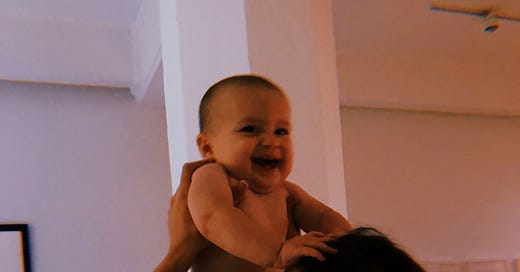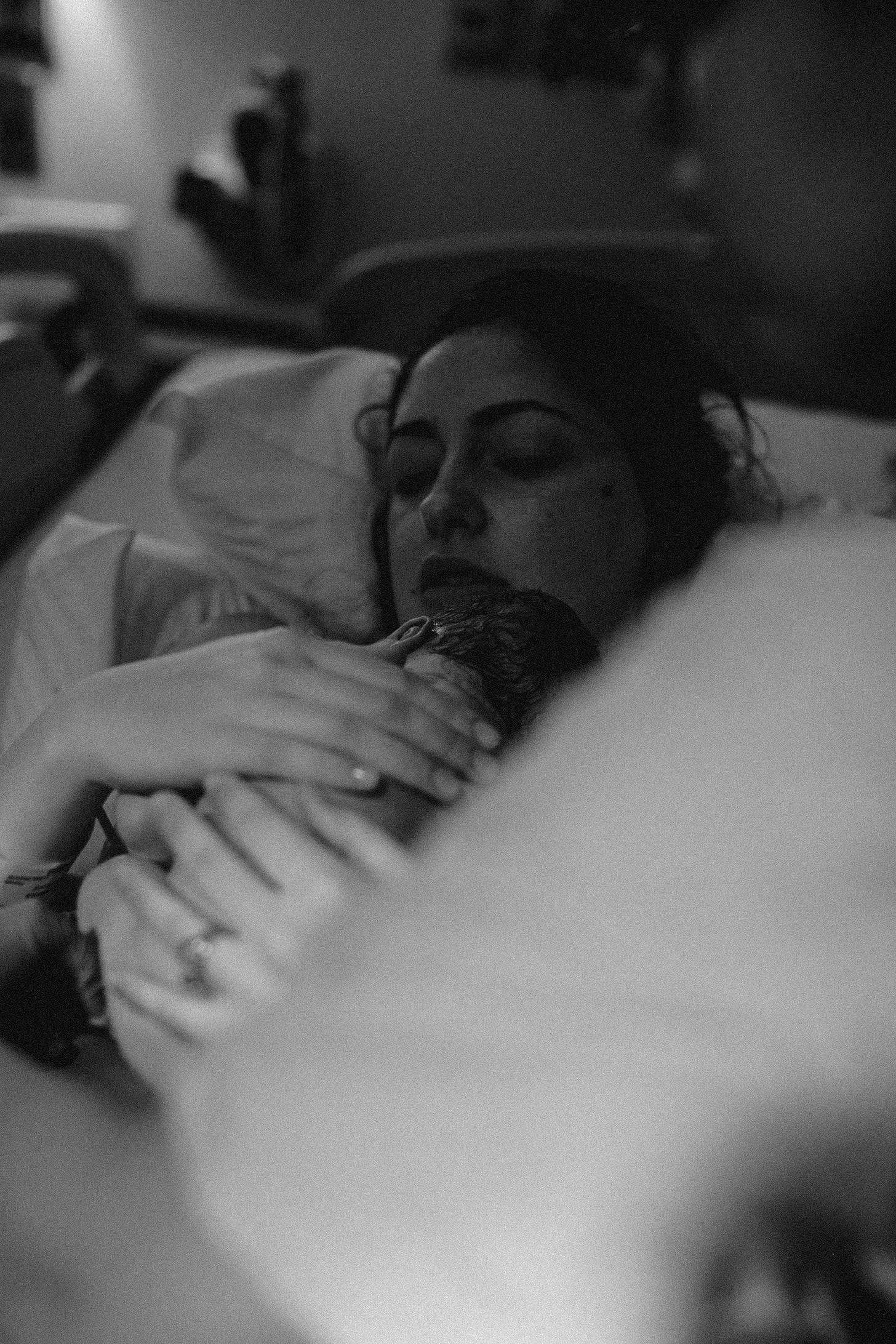held
I came home late one night from a Kindergarten potluck for my six year old, Henry. My backpack, with its vivid crimson floral pattern was heavy with notebooks and the laptop I carry around all day, barely hit the ground when both boys, Waylan being four, met me at the door. They pulled me to the rug to sit on my lap and wrap their arms around me. My loafers, tucked beneath my legs, couldn’t even make it off my feet. Waylan situated himself onto my lap in a sideways fetal position, his head tucked below my chin. Henry snuggled under my arm, resting his head on my shoulder.
I’ve been away - what feels like - every evening for - what feels like - years. In reality, for the past 5 weeks, I’ve been taking night classes for three nights out of the week. Two of those nights, I’m home for bedtime. One of those nights, I miss them entirely by the time I stroll through the door at 10:30 PM.
This intimate moment was followed by a quick shift to asking for Tate’s cookies. We sat at the counter, eating our treats and talking about our thorns — Henry was sad the slide was taken away at roof (his friends were going up the slide), Waylan was frustrated I wasn’t home earlier. And our roses — Henry was excited to he still got a treat, Waylan was excited about his upcoming field trip. Chocolate smeared across their faces.
In my classes this week, in over 100 pages of reading and two hours of observations, I was thinking about children. I was thinking about the way a child experiences the world around them, in utero through adulthood, the way they sense their internal world, the way it correlates to the external world. How senses even come to be. The way they are safely held within their internal experience. The way, much of the time, they are not safely held. The defenses that are built to ensure they survive, to ensure they stay safe. How deeply they are fighting to be seen. How that fight stays with them. How that fight is defense.
Before bed, Henry, Waylan and I piled on our rocking chair. This is the rocking chair I would sit in to breastfeed them, to hold them. Years ago, I ensured it had an armrest and a pillow. I ensured it was the chair that could hold me as I held them. Now their legs are long. Lanky, even. Henry sat on the arm rest, like a big kid would and Waylan chose my lap because he’s still small despite his vocabulary. Normally, we’d have a dance party but we were all tired so instead we turned on my phone to listen to The Beatles. I pushed back and forth to the fast rhythm of Ob-La-Di, then Come Together. When Henry chose Let it Be, I could feel his body getting heavy. The closeness, the laps, the rocking, the carrying. This is what it is to be a young child who is loved.
What I am learning is it’s just as important for an adult. The physical-ness of early childhood allows for babies on hips but it becomes less clear to us as we age of what it is to be held, rocked, carried. And some may argue we do not need these things; that age implies we can handle torment, pain and war alone. But this is just untrue. I don’t need to be swaddled in a muslin blanket, but a safe, warm bed at night is necessary for my health. I may not need to climb into someone’s lap, but to have another human who can listen to me intently feels the same. I may not need to be rocked, but movement — a light walk — allows the energy inside me to move.
To be held as an adult requires another. It requires relationship. Some mornings, like yesterday, Waylan wakes up with rage. Being four, moving through the last 5 weeks with less of me, being in school full days. If I am in the shower when he wakes up, like yesterday, he screams at me. He stormed into the running, warm shower with his clothes on, refused to get out. I miss you, he’s saying, even if he is not saying it. Don’t do anything without me, he’s saying, even if he is not saying it. Don’t leave me yet, he’s saying, even if he’s not saying it yet.
I long for my mother’s hugs, the soft sigh she gave as she wrapped me up, the way she held on longer than most, the way the embrace lingered.
How do I meet the rage of a four year old? I hold it. The rage, the boy. The shins of his pants were drenched, his hair had droplets of water, his breath was shallow, his tears were wells. I had progressed without him, progressed in my day while he was sleeping. How dare I? So, for nearly twenty minutes, moving between humid bathroom and dry closet, I held his rage. Sometimes he wanted to be held by me, other times he wanted to hit me. And I sat and breathed deeply. There were moments when my time felt crunched — we did, after all, have to get to school — but I surrendered my anxiety of lateness to allow for his feelings to run. I noticed how his arms wanted to fight and I stopped them when they forcefully, fiercely aimed for me. He can feel his rage safely, without hurting someone else. I trust him to be able to do that.
When my grief turned two, I wrote about how resonate the pain was to the age it came into being. It has been hard to separate grief from motherhood, motherhood from grief. In my experience, they are stitched together with fury. These large parts of me merge indefinitely.
My grief turns two today. Times flies, a mother would say. And a mother I am so time flies.
My grief is no longer two — it’s six with language and experience. It draws and creates. And I think the most important part of getting my grief experience from infancy to six — a major development from anyone who knows the acute pain of catastrophe — is being held.
By a therapist, by friends.
I am quick to recognize who cannot hold such pain. Perhaps a disturbing part of grief comes with the pain of understanding who can tolerate such intensity, such darkness. I came to understand who could hold the darkness within themselves. I’ve come to be able to recognize who can witness me storm into a shower fully clothed, because they’ve done it too. Who listens to understand, rather than to get me out. Who can safely hold me through it, soaking wet, unable to breathe, flailing around. Who has the desire to know the deep understanding of my experience.
This is what it is to be an adult who is loved.
“…it makes one wonder,” D.W. Winnicott says, “whether the leaven of some satisfying experience of being understood on a deep level may not be continuing to be still at work.”
May you feel deeply understood by one person in your life. May you feel so held.




